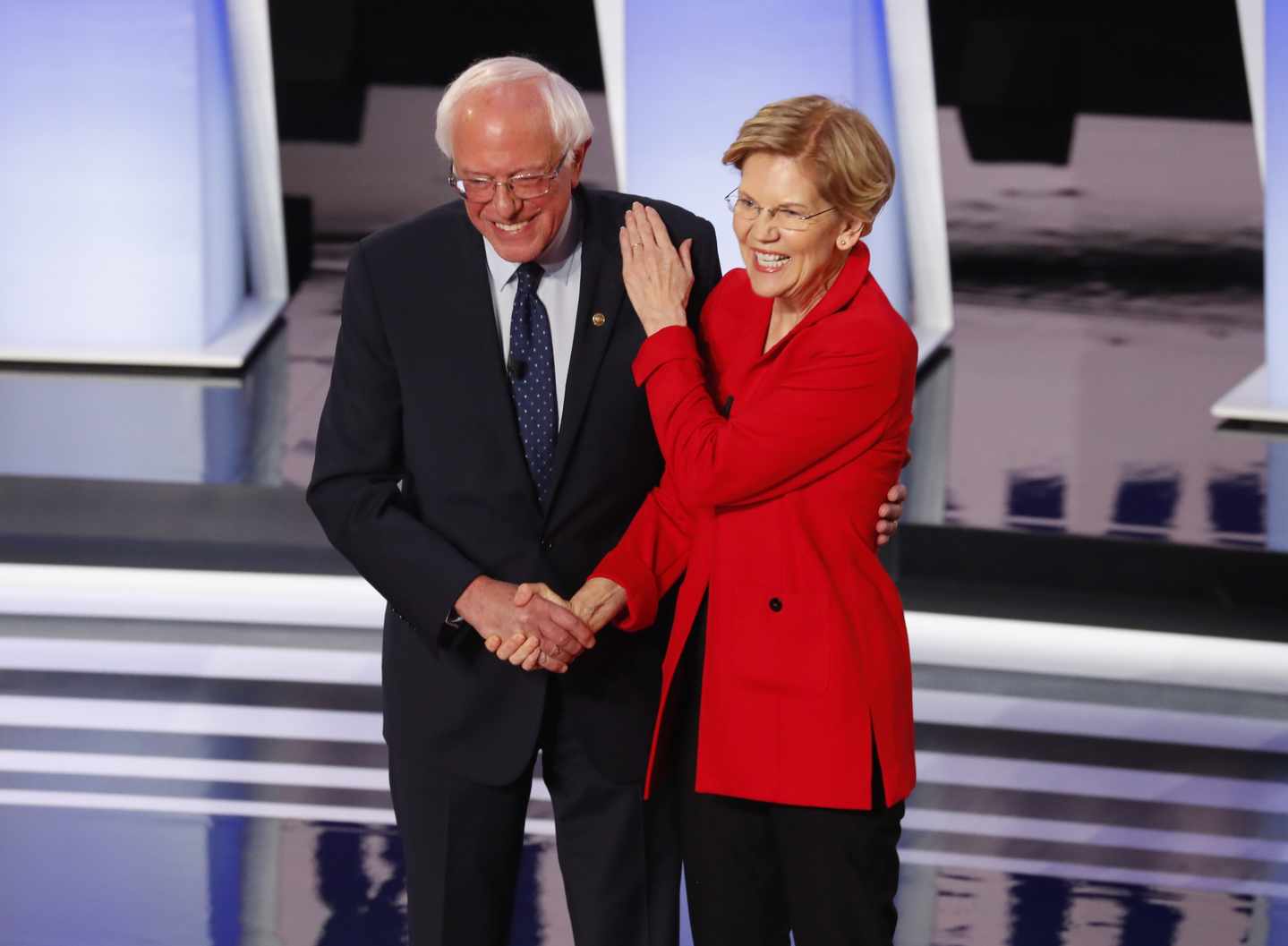Free Higher Education Support Is Age- and Party-Based
October 5, 2019#election2020 #Democraticpresidentialcandidates #collegeloanforgiveness #RealClearOpinionResearch #freecollege #highereducation

Freedom has been a hallmark of the contest for the presidential nomination of the Democratic Party. At least, freedom in the sense that candidates are promising, among other free things, free health care and free guaranteed income and free universal childcare.
Second (perhaps only to health care) on the Democrats’ wish list is freer access to higher education. Over two presidential elections, Sen. Bernie Sanders has almost singlehandedly made a call for free college part of party orthodoxy.
“Today, we say to our young people that we want you to get the best education that you can, regardless of the income of your family,” the Vermont Democratic socialist proclaims on his website. “Good jobs require a good education. That is why we are going to make public colleges and universities tuition free and cancel all student debt.”
The rest of the field agrees, albeit in different shades and different iterations. Some, such as former Vice President Joe Biden, only back two years of free community college. Others, such as Sen. Elizabeth Warren, support cancelling student debt but making cancellations dependent on the income of the graduate.
At a moment when the cost of college, and the average student loan debt, are higher than ever, a new RealClearOpinion Research poll of 2,014 registered voters shows that a majority of Americans support both of these ideas.
But support and opposition vary significantly among the old and the young – a point surely of interest to candidates preparing their talking points for the fourth debate of the Democratic primary later this month.
Asked if they support canceling student loan debt for all Americans, 54% of respondents answered in the affirmative and 39% in the negative. Among Millennials (those born between 1981 and 1996) and Generation Z (those born from 1997 onward) support for the idea jumps to 64% with 32% opposed. Generation X (those born between 1965 and 1980) respondents are similarly in support: 62%% to 30%.
But Baby Boomers (those born between 1946 and 1964) do not favor the idea: 50% oppose erasing education debts while 40% support wiping the slate clean.
The bottom line? Younger generations, who are still struggling with the cost of college, would like to see the federal government accept responsibility for their loans while older generations, who have put higher education in the rearview mirror, are much more skeptical of loan amnesty.
A political lens puts these answers in further context: Millennials have eclipsed Baby Boomers as a potential voting bloc in recent years, but as a political animal, older voters are much more reliable than their progeny. This is an inescapable electoral reality for any candidate who wishes to occupy the Oval Office: As AARP notes, Americans older than 50 made up 56% of the national electorate in 2016.
Still, there is nothing in the RealClear Opinion Research data to show that the proposed Democratic giveaways on higher education are hurting the candidates. Self-identified Democrats supported cancelling student debt by a margin of 66% to 28% while self-identified Republicans have a nearly opposite view: 33%-60%.
When asked if they support or oppose making two- and four-year public colleges and universities tuition-free for all Americans, 59% of all respondent answered in the affirmative and 34% in the negative.
Millennials and Generation Z overwhelmingly support the idea with 68% favoring it and 25% opposed. Generation X voters are similarly in support, 65% to 29%. But the Baby Boomers are split, 48% to 44%.
Answers to this question also hewed along party lines, with Democrats in support, 75% to 20%, and Republicans in opposition, 35% to 58%.
Whichever candidate wins the nomination will likely build into his or her platform some version of free college and debt forgiveness. The incumbent president will likely respond, in turn, by accusing his opponent of embracing socialism.
And the Trump administration has been wont to reduce spending on this front, not add to it. The president proposed cuts to student aid in the past, most recently proposing an elimination of Public Service Loan Forgiveness in his budget requests to Congress.
During his last general election, Trump campaign co-chairman Sam Clovis, an Iowa conservative activist and professor of economics at Morningside College, flunked the idea of free college. Asked about then-Democratic nominee Hillary Clinton’s call for debt-free public education, Clovis said the answer was “unequivocally, no.”
Source: https://www.realclearpolitics.com/

